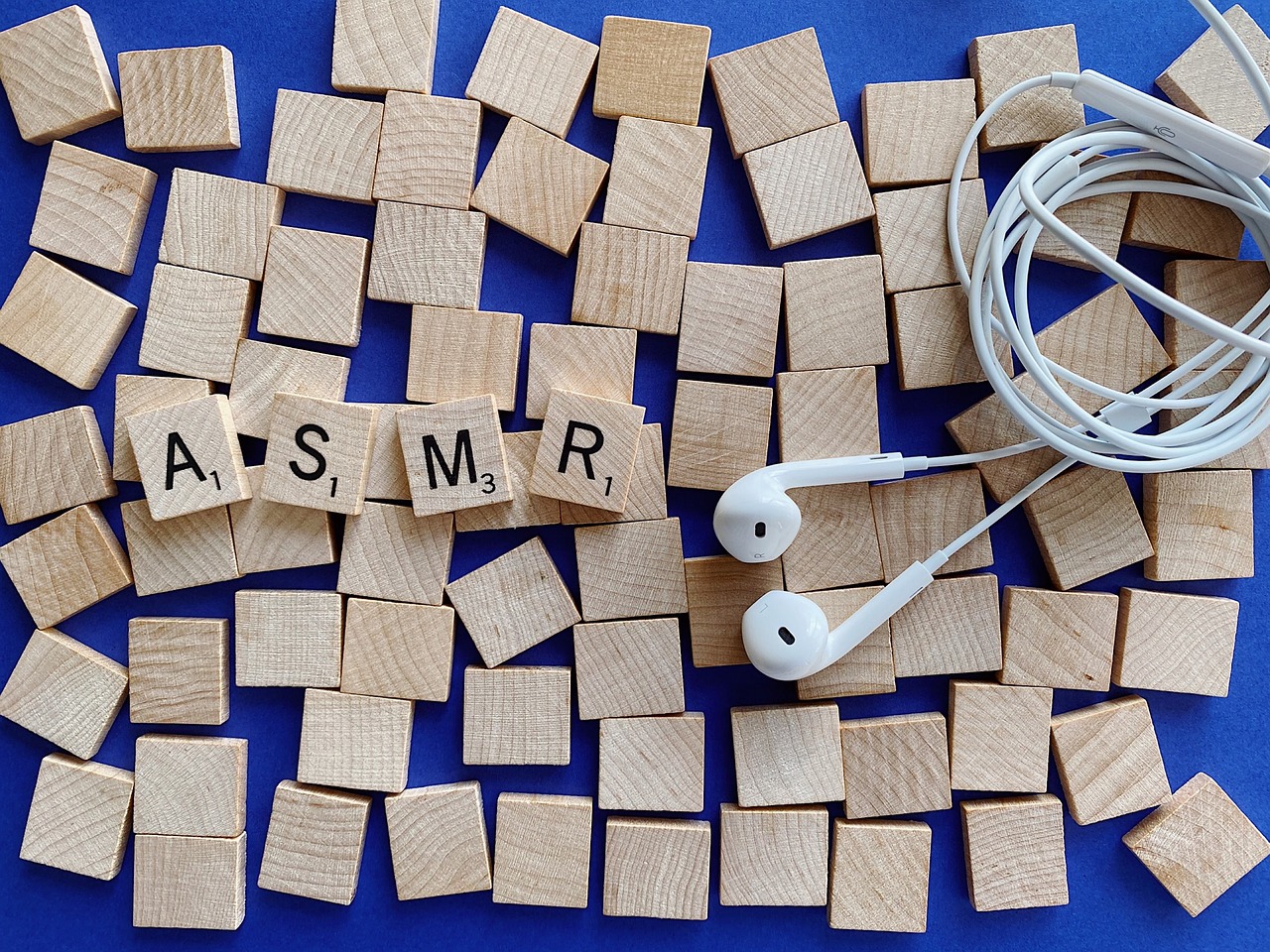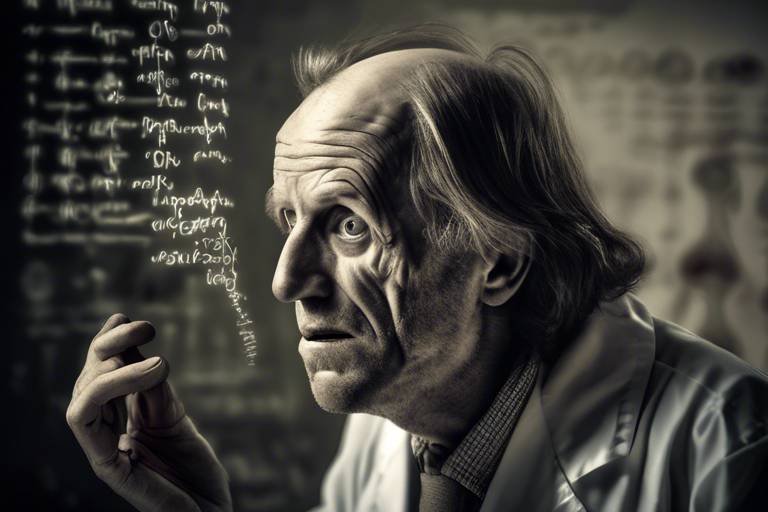Sleep Science - Unraveling the Mystery with Philosophy
Sleep is a fascinating phenomenon that has intrigued humanity for centuries. It’s not just a time for our bodies to recharge; it’s a complex interplay of biological, psychological, and philosophical elements that shape our very existence. Imagine this: every night, we drift into a world where time stands still, and reality blurs with imagination. This journey into sleep is not merely a physical process but a profound exploration of consciousness itself. So, what exactly happens when we close our eyes? How does sleep influence our thoughts, emotions, and even our understanding of reality? In this article, we’ll dive deep into the intricate relationship between sleep science and philosophical inquiry, unraveling the mysteries that lie within our nightly slumber.
Sleep is essential for both our physical and mental health, acting as the foundation upon which our well-being is built. Think of sleep as a nightly reset button that our bodies desperately need. During sleep, our brains are busy processing information, consolidating memories, and regulating our emotions. It’s like a nightly maintenance session for our minds and bodies, ensuring that we wake up refreshed and ready to tackle the day ahead. Without adequate sleep, our cognitive functions can decline, leading to difficulties in concentration, decision-making, and emotional regulation. This can create a ripple effect on our overall well-being, making us more susceptible to stress, anxiety, and even physical health issues. In essence, sleep is not just a luxury; it’s a necessity that plays a crucial role in our daily lives.
When we turn our gaze to philosophy, we uncover a wealth of insights regarding the nature of sleep. Philosophers have long pondered the essence of consciousness and the significance of dreaming. Historically, figures like Aristotle and Descartes have explored the implications of sleep on our understanding of reality and self-awareness. For instance, Descartes famously questioned, “How do I know I am not dreaming right now?” This inquiry opens up a fascinating dialogue about the nature of reality and our perception of it. In a world where dreams can feel as vivid and real as waking life, what does that say about our understanding of consciousness? Dreams serve as a bridge between the conscious and subconscious, challenging us to reconsider what it means to be aware.
What happens to our consciousness during sleep? This question has sparked numerous philosophical debates. Some argue that sleep represents a state of unconsciousness, while others believe it is a unique form of awareness. When we sleep, we enter different stages, each with its own characteristics and functions. For example, during REM (Rapid Eye Movement) sleep, our brains are highly active, and this is when most dreaming occurs. This raises intriguing questions: Are we truly unconscious during sleep, or are we experiencing a different kind of consciousness? The very act of dreaming suggests that our minds are still engaged in a form of processing and creativity, blurring the lines between reality and fantasy.
Dreams are where the magic happens, blurring the lines between reality and imagination. They can be whimsical, terrifying, or even enlightening, often reflecting our innermost thoughts and desires. Philosophically, dreams have been interpreted in various ways. Some view them as mere byproducts of brain activity, while others see them as profound insights into our psyche. For instance, the famous psychoanalyst Sigmund Freud posited that dreams are the “royal road to the unconscious,” offering a glimpse into our hidden fears and wishes. This perspective invites us to consider dreams not just as random images but as meaningful experiences that can inform our waking lives.
Existentialist thought often reflects on the human condition, grappling with themes such as freedom, isolation, and the search for meaning. Sleep, in this context, can be viewed as a metaphor for the human experience. Just as we surrender to sleep, we also confront the uncertainties of existence. The act of sleeping can symbolize a temporary escape from the chaos of life, allowing us to reflect on our place in the universe. Furthermore, the isolation that can accompany sleep, especially in the form of insomnia or sleep disorders, raises profound questions about human connection and the nature of suffering. How do we find meaning in our sleep, and what does it reveal about our existence?
Advancements in sleep research have unveiled critical insights into sleep mechanisms, enhancing our understanding of its physiological and psychological aspects. Studies have shown that sleep is not a passive state but an active process vital for various bodily functions. For instance, during deep sleep, our bodies repair tissues, synthesize proteins, and release growth hormones. Similarly, the brain clears out toxins accumulated during the day, promoting cognitive health. These scientific findings not only validate the importance of sleep but also intertwine with philosophical inquiries about our well-being and existence.
Sleep disorders raise important questions about health and existence. Conditions like insomnia, sleep apnea, and narcolepsy can significantly impact one's quality of life, leading to physical and mental health challenges. Philosophically, these disorders prompt us to consider the nature of suffering and the human experience. What does it mean to struggle with sleep? How does it affect our identity and relationships? The existential implications of sleep disorders can lead to profound reflections on the human condition, emphasizing our vulnerability and the quest for understanding.
As sleep medicine evolves, ethical considerations emerge. The treatment of sleep-related conditions often involves complex moral dilemmas that practitioners and patients must navigate. For example, the use of medications to induce sleep raises questions about dependency and long-term effects. Additionally, how do we balance the need for effective treatment with the potential risks involved? These ethical considerations challenge us to think critically about our approach to sleep medicine and the broader implications for our understanding of health and well-being.
Different cultures perceive sleep in unique ways, shaping our understanding of its significance. In some cultures, sleep is viewed as a sacred time for reflection and connection with the divine, while in others, it is seen as a necessary evil. For instance, in many indigenous cultures, dreams are considered a vital source of wisdom and guidance. This cultural lens invites us to explore how beliefs and practices surrounding sleep influence our experiences and perceptions. By examining sleep through a cultural context, we can gain a deeper appreciation for its role in the human experience.
- What is the role of sleep in mental health? Sleep plays a crucial role in regulating mood and cognitive function. Insufficient sleep can lead to anxiety and depression.
- How do dreams affect our waking life? Dreams can provide insights into our subconscious thoughts and emotions, influencing our behavior and decisions.
- Can sleep disorders impact overall health? Yes, sleep disorders can lead to serious health issues, including cardiovascular problems, obesity, and impaired immune function.
- What are some common sleep disorders? Common sleep disorders include insomnia, sleep apnea, narcolepsy, and restless legs syndrome.

The Importance of Sleep
Sleep is not just a time to rest; it’s a vital process that plays a crucial role in our physical and mental health. Imagine your body as a smartphone; just like it needs to recharge to function optimally, we need sleep to rejuvenate our systems. During sleep, our bodies engage in essential processes that help us recover from the day’s activities. It’s during this time that our brain consolidates memories, regulates hormones, and repairs tissues. Without adequate sleep, we risk impairing our cognitive functions, emotional stability, and overall well-being.
So, what exactly happens when we sleep? Well, sleep is divided into several stages, each serving a unique purpose. The two main types of sleep are REM (Rapid Eye Movement) and NREM (Non-Rapid Eye Movement). Each cycle of sleep lasts about 90 minutes, and we typically go through multiple cycles each night. Here’s a quick breakdown of what happens:
| Sleep Stage | Description | Benefits |
|---|---|---|
| NREM Stage 1 | Light sleep, transition between wakefulness and sleep. | Helps the body relax and prepares for deeper sleep. |
| NREM Stage 2 | Moderate sleep, where heart rate slows and body temperature drops. | Critical for memory consolidation and learning. |
| NREM Stage 3 | Deep sleep, essential for physical recovery. | Boosts immune function and repairs tissues. |
| REM Sleep | Dreaming occurs, and the brain is highly active. | Supports emotional regulation and creativity. |
Now, let’s talk about the impact of sleep on our cognitive functions. Have you ever noticed how a lack of sleep can turn you into a grumpy zombie? That’s because sleep deprivation can lead to impaired attention, reduced problem-solving skills, and even memory lapses. Studies have shown that sleep plays a significant role in enhancing our learning capabilities. When we sleep, our brains process and store information from the day, making it easier to recall later. It’s like hitting the save button on your computer after a long day of work.
Beyond cognitive function, sleep is also crucial for regulating our emotions. Have you ever experienced a rollercoaster of feelings after a night of tossing and turning? Poor sleep can exacerbate feelings of anxiety and depression, leading to a vicious cycle where mental health issues further disrupt sleep. According to research, individuals who regularly get less than seven hours of sleep are more likely to experience mood disorders. This is why prioritizing sleep is not just good for your body; it's essential for your mind.
In addition to cognitive and emotional benefits, sleep also plays a fundamental role in our physical health. It’s during deep sleep that our bodies release growth hormones, which are essential for muscle repair and growth. Furthermore, adequate sleep helps regulate our metabolism and immune function. In other words, getting enough shut-eye can help you fend off illnesses and maintain a healthy weight. Think of sleep as the magic potion that keeps our bodies in tip-top shape.
In conclusion, the importance of sleep cannot be overstated. It’s a fundamental pillar of health that supports our cognitive abilities, emotional well-being, and physical recovery. So, the next time you find yourself scrolling through your phone late at night, remember that your body is calling for some quality sleep. Prioritize it, and you’ll likely notice a remarkable difference in your overall health and happiness.
- How many hours of sleep do I need? Most adults require between 7 to 9 hours of sleep per night for optimal health.
- What are the effects of sleep deprivation? Lack of sleep can lead to cognitive impairment, mood changes, weakened immune function, and increased risk of chronic diseases.
- Can I catch up on sleep during the weekend? While you can recover some sleep debt, it’s best to maintain a consistent sleep schedule throughout the week.

Philosophical Perspectives on Sleep
The exploration of sleep from a philosophical standpoint invites us to ponder profound questions about our existence and consciousness. Sleep is not merely a biological necessity; it serves as a gateway to understanding the very essence of what it means to be human. Throughout history, philosophers have grappled with the implications of sleep on our perception of reality, self-identity, and the nature of consciousness itself. By examining these perspectives, we can uncover insights that not only deepen our understanding of sleep but also challenge our assumptions about waking life.
To begin with, we must consider the historical context in which sleep has been philosophically analyzed. Thinkers like Aristotle and Descartes have offered intriguing observations on the relationship between sleep and consciousness. Aristotle viewed sleep as a state where the soul's faculties are temporarily withdrawn from the body, while Descartes famously pondered, "I think, therefore I am," suggesting that the act of thinking is integral to existence. Yet, during sleep, when our cognitive faculties seem to shut down, what does this imply about our identity? Are we still 'us' when we are unconscious? These questions reveal the complexities of defining consciousness and self-awareness.
Moreover, contemporary philosophers continue to dissect the nature of consciousness during sleep. Some argue that sleep challenges the notion of a continuous self, as we drift in and out of various states of awareness. This brings us to the intriguing debate about the nature of consciousness. Are we merely a collection of experiences that can be altered or erased during sleep? Or is there a deeper, intrinsic self that persists regardless of our state of consciousness? These inquiries not only evoke curiosity but also hint at the existential implications of our nightly slumber.
What happens to our consciousness during sleep? This question is central to philosophical discussions about the mind. Some theorists propose that sleep serves as a reset for our cognitive processes, allowing for necessary mental maintenance. Others suggest that the dream state, often experienced during REM sleep, provides a unique opportunity for the mind to explore alternative realities. This exploration raises further questions: are dreams a mere byproduct of our subconscious, or do they hold significant meaning? The philosophical implications of dreams can be vast, leading us to consider their role in shaping our understanding of reality and self-perception.
Dreams often blur the lines between reality and imagination, creating a fascinating intersection for philosophical inquiry. They can feel incredibly real, leading us to question the nature of our waking experiences. Philosophers like Friedrich Nietzsche and Sigmund Freud have posited that dreams reflect our innermost desires and fears, serving as a mirror to our waking lives. This suggests that by analyzing our dreams, we might gain insights into our subconscious motivations and the human condition itself. In this way, sleep becomes not just a biological function but a profound philosophical journey.
Existentialist thinkers often reflect on the human condition, grappling with themes such as freedom, isolation, and the search for meaning. Sleep, in this context, can be viewed as a metaphor for our existential struggles. On one hand, it represents a necessary escape from the burdens of daily life, a momentary reprieve from our responsibilities and anxieties. On the other hand, it can evoke feelings of isolation and vulnerability, as we surrender our conscious control to the unconscious mind. This duality reflects the complexities of existence itself, prompting us to consider how sleep intertwines with our quest for meaning and understanding in a seemingly chaotic world.
In summary, the philosophical perspectives on sleep invite us to engage in a rich dialogue about consciousness, reality, and the human experience. By examining historical and contemporary viewpoints, we can appreciate how sleep serves as a profound lens through which we can explore our existence. As we continue to unravel the mysteries of sleep, we find ourselves not only questioning our understanding of sleep but also the very nature of being itself.
- What is the philosophical significance of sleep? Sleep challenges our understanding of consciousness and self-identity, prompting us to question what it means to be human.
- How do dreams relate to our waking life? Dreams can reflect our subconscious desires and fears, providing insights into our waking experiences.
- What do existentialist thinkers say about sleep? They view sleep as a metaphor for existential struggles, highlighting themes of freedom and isolation.

The Nature of Consciousness
Have you ever wondered what happens to your consciousness when you drift off to sleep? It's a question that has puzzled philosophers, scientists, and dreamers alike for centuries. During sleep, our bodies take a break, but what about our minds? Are we truly unconscious, or is there a different kind of awareness at play? This is where the fascinating intersection of sleep science and philosophy comes into play, challenging our traditional notions of consciousness and identity.
Philosophers like René Descartes and Immanuel Kant have long debated the essence of consciousness, positing that our awareness defines our existence. Descartes famously declared, "I think, therefore I am," suggesting that the act of thinking is what confirms our being. However, when we sleep, the mind enters a state that is not entirely conscious, leading us to question whether we cease to exist in some sense. This brings us to the intriguing idea that sleep might not be the absence of consciousness but rather a different state of being, one that could be just as significant as wakefulness.
Sleep introduces a unique paradox: while we are physically inactive, our minds embark on journeys through dreams, creating vivid narratives and scenarios that can feel just as real as our waking experiences. During this time, our consciousness may shift, allowing us to explore thoughts and emotions that are often suppressed during our busy, waking hours. This leads us to consider the following:
- Is dreaming a form of consciousness? Many argue that dreams are a manifestation of our subconscious, revealing desires and fears that we may not confront while awake.
- What does it mean for our identity? If our consciousness can exist in these alternate states, does it challenge the notion of a singular, unchanging self?
- How does sleep influence our perception of reality? The experiences we have in dreams can alter our understanding of what is real, prompting us to question the very fabric of our existence.
Additionally, the nature of consciousness during sleep raises profound questions about awareness. Some contemporary philosophers argue that even in sleep, a form of awareness persists. This perspective suggests that our consciousness is not merely a binary state of on or off but exists on a spectrum, with sleep representing a unique, albeit altered, form of awareness. This concept aligns with findings from sleep research, which indicates that certain brain functions remain active even during deep sleep, implying that our minds are still engaged in some capacity.
In summary, the nature of consciousness during sleep presents a rich tapestry of inquiry, blending scientific research with philosophical exploration. As we continue to unravel the mysteries of sleep, we must grapple with the profound implications it holds for our understanding of consciousness, identity, and what it truly means to be human.
- What is consciousness? Consciousness is the state of being aware of and able to think about one's own existence, thoughts, and surroundings.
- Can we experience consciousness during sleep? Yes, many researchers believe that different states of consciousness can occur during sleep, especially during dreaming.
- How do dreams relate to consciousness? Dreams can provide insights into our subconscious mind and may reflect our thoughts, feelings, and experiences.
- What are the philosophical implications of sleep? Sleep challenges our understanding of identity, awareness, and the continuity of the self, raising questions about what it means to exist.

Dreams and Reality
When we close our eyes at night and drift into the realm of dreams, we often find ourselves in a world that feels just as real as the one we inhabit during our waking hours. This intriguing phenomenon raises profound questions about the nature of reality itself. Are dreams merely figments of our imagination, or do they hold deeper truths about our existence? Philosophers and scientists alike have pondered these questions, trying to untangle the relationship between dreams and the reality we perceive.
Dreams can often feel vivid and immersive, blurring the lines between what is real and what is a mere construct of our subconscious mind. Consider this: when you're in a dream, your brain is actively engaged, creating scenarios and emotions that can feel incredibly authentic. You might find yourself flying through the sky, conversing with long-lost friends, or even facing your deepest fears. These experiences can evoke strong feelings, making it difficult to dismiss them as just 'dreams.'
Philosophically, this raises the question of whether our dreams can be considered a form of reality. Some thinkers argue that dreams are a reflection of our inner thoughts and desires, suggesting that they provide insight into our psyche. Others, like René Descartes, famously questioned the reliability of sensory experiences, proposing that if we can be deceived in our dreams, how can we trust our waking experiences? This leads us to ponder: if dreams can feel so real, what does that say about the nature of our consciousness?
Moreover, dreams can serve as a canvas for our subconscious to explore complex themes, unresolved conflicts, and even creative ideas. Many artists, writers, and inventors have credited their dreams with sparking inspiration for their masterpieces. This intertwining of dreams and creativity further complicates our understanding of reality, as it suggests that the dream world can influence our waking lives in significant ways.
To illustrate this connection between dreams and reality, consider the following points:
- Emotional Reflection: Dreams often reflect our emotional state, allowing us to process feelings we may not confront while awake.
- Problem-Solving: Many individuals have reported solving complex problems or gaining insights during their dreams.
- Symbolic Interpretation: Dreams can symbolize deeper issues, prompting introspection and self-discovery.
In essence, dreams act as a bridge between our conscious and subconscious minds, challenging our perceptions of reality. They remind us that our understanding of existence is not limited to what we can see and touch. Instead, it encompasses a vast array of experiences, both real and imagined, that shape who we are.
As we delve deeper into the philosophical implications of dreams, we must also consider the existential aspects. What do our dreams tell us about our hopes, fears, and desires? Are they simply a byproduct of our brain's activity during sleep, or do they serve a greater purpose in helping us navigate the complexities of life? These questions invite us to reflect on the significance of our dreams and the reality they create.
- What is the purpose of dreaming? Dreams may serve various functions, including emotional processing, problem-solving, and creative inspiration.
- Can dreams predict the future? While some people believe in prophetic dreams, scientific evidence does not support the idea that dreams can predict future events.
- How can I remember my dreams better? Keeping a dream journal and practicing mindfulness can help improve dream recall.

Sleep and Existentialism
When we dive into the realm of existentialism, we find ourselves grappling with profound questions about the human condition. Sleep, often seen as a mere biological necessity, takes on a deeper significance when viewed through this philosophical lens. It becomes a metaphor for our struggles with freedom, isolation, and the relentless search for meaning in our lives. Think about it: while we sleep, we are temporarily liberated from the burdens of daily existence, yet we are also plunged into a state of vulnerability and disconnection from the world around us.
Existentialist thinkers, from Søren Kierkegaard to Jean-Paul Sartre, have emphasized the importance of individual experience and the inherent absurdity of life. Sleep embodies this absurdity in many ways. On one hand, it provides a necessary respite from our conscious struggles, allowing us to recharge and rejuvenate. On the other hand, it raises unsettling questions about what it means to truly exist. Are we merely passive beings during sleep, or is there an active engagement with our subconscious that shapes our waking reality?
Moreover, sleep can be seen as a metaphor for existential isolation. In those quiet hours when the world is asleep, we confront our innermost thoughts and fears. This solitude can be both liberating and daunting. It invites us to reflect on our choices, our relationships, and the fleeting nature of existence. The philosopher Martin Heidegger argued that our awareness of being and non-being is heightened in moments of solitude, and sleep, in its own way, serves as a profound encounter with our existential reality.
In existentialist thought, the concept of freedom is paramount. When we sleep, we relinquish control over our conscious mind, entering a realm where dreams can take us anywhere. This paradox of freedom and surrender evokes a sense of tension. Are we free to explore our innermost desires and fears in our dreams, or are we simply at the mercy of our subconscious? This duality reflects the broader existential struggle: the quest for autonomy in a world that often feels chaotic and unpredictable.
Ultimately, sleep and existentialism intertwine to remind us of the complex nature of our existence. They challenge us to embrace the ambiguity of life, to confront our fears and desires, and to seek meaning even in the quietest moments. Just as we cannot escape the inevitability of sleep, we cannot escape the existential questions that haunt us. They are part of the human experience, urging us to reflect, to dream, and to find our place in the vast tapestry of existence.
- What is the connection between sleep and existentialism? Sleep serves as a metaphor for human struggles with freedom, isolation, and the search for meaning, prompting deep philosophical inquiries about existence.
- How do existentialist thinkers view sleep? Existentialist philosophers see sleep as an opportunity for reflection and confrontation with the self, emphasizing both the absurdity and necessity of sleep.
- Can sleep influence our understanding of consciousness? Yes, sleep challenges our perceptions of awareness and identity, prompting us to explore the boundaries of consciousness.

Scientific Insights into Sleep
Understanding sleep is a fascinating journey into the intricate workings of the human body and mind. Recent advancements in sleep research have illuminated various aspects of sleep that were once shrouded in mystery. For instance, did you know that sleep is not merely a time for rest, but an active phase where essential processes occur? During sleep, our bodies undergo a variety of restorative functions that are crucial for our overall health and well-being. This includes the regulation of hormones, repair of tissues, and strengthening of the immune system. It’s like a nightly reboot for our bodies!
One of the most compelling areas of research is the different stages of sleep, particularly the REM (Rapid Eye Movement) and non-REM stages. These stages play distinct roles in our mental and physical health. The non-REM sleep is primarily associated with restorative processes, while REM sleep is linked to memory consolidation and emotional processing. A study published in the journal Nature highlighted how REM sleep contributes to our ability to learn and adapt, suggesting that a good night's sleep can enhance our problem-solving skills and creativity. Imagine waking up with a fresh perspective on a challenge you faced the day before!
Moreover, sleep is regulated by a complex interaction of hormones and neurotransmitters. The hormone melatonin, often dubbed the “sleep hormone,” plays a pivotal role in signaling our bodies when it’s time to wind down. As the sun sets and darkness envelops the environment, melatonin levels rise, preparing us for sleep. Conversely, exposure to blue light from screens can inhibit melatonin production, making it harder for us to fall asleep. This highlights the importance of creating a sleep-friendly environment, free from distractions, to optimize our sleep quality.
Scientifically, sleep disorders such as insomnia and sleep apnea have gained attention for their profound impact on health. Insomnia, characterized by difficulty falling or staying asleep, can lead to a cascade of health issues, including anxiety, depression, and impaired cognitive function. On the other hand, sleep apnea, a condition where breathing repeatedly stops and starts during sleep, can increase the risk of cardiovascular problems. Understanding these disorders not only sheds light on our physiological state but also prompts philosophical questions about the nature of suffering and the quality of human experience.
To further understand the mechanisms of sleep, researchers have employed various technologies such as polysomnography, which records brain waves, oxygen levels, heart rate, and breathing during sleep. This comprehensive approach allows scientists to observe and analyze the different sleep stages and their effects on our health. For example, a recent study found that individuals who regularly experience poor sleep quality are more prone to chronic health conditions, emphasizing the need for prioritizing good sleep hygiene. The relationship between sleep and health is becoming increasingly evident, making it a crucial area of study for both scientists and philosophers alike.
In conclusion, the scientific insights into sleep reveal not just its biological importance but also its profound implications for our mental and emotional well-being. As we continue to explore the depths of sleep science, we uncover not only how to improve our sleep quality but also how it shapes our very existence. The quest for understanding sleep is a journey that intertwines science with philosophy, prompting us to reflect on the essence of consciousness and the human experience.
- What are the stages of sleep? Sleep consists of two main types: REM and non-REM sleep, each serving different functions for our health.
- How does sleep affect mental health? Quality sleep is crucial for emotional regulation and cognitive function; poor sleep can lead to anxiety and depression.
- What is sleep apnea? Sleep apnea is a disorder characterized by pauses in breathing during sleep, leading to disrupted sleep and health risks.
- How can I improve my sleep quality? Establishing a regular sleep schedule, minimizing screen time before bed, and creating a comfortable sleep environment can help.

Sleep Disorders and Their Philosophical Implications
When we think about sleep disorders, our minds often jump to the physical symptoms: tossing and turning, waking up groggy, or feeling like a zombie during the day. But what if I told you that these disturbances in our nightly rest can also spark profound philosophical questions? Sleep disorders are not just medical issues; they are windows into the complexities of our existence, identity, and the very nature of our consciousness. As we delve into this topic, we uncover a tapestry woven from threads of science, philosophy, and the human experience.
Consider for a moment how sleep disorders like insomnia or sleep apnea can impact our lives. They don’t merely disrupt our sleep cycles; they affect our mood, cognition, and even our relationships. In essence, they challenge our understanding of what it means to live a fulfilling life. When we are deprived of sleep, we are not just tired; we are disconnected from our sense of self and our ability to engage with the world around us. This raises a critical question: if our consciousness is altered by the lack of sleep, what does that say about our identity? Are we truly ourselves when we are awake, or is our essence tied to the quality of our rest?
Philosophically speaking, sleep disorders can be seen as a reflection of our existential struggles. For instance, existentialist thinkers like Jean-Paul Sartre often emphasized the importance of personal freedom and the burdens of choice. Imagine someone suffering from chronic insomnia; their freedom is curtailed not by external forces but by an internal battle with their own mind. This struggle can lead to feelings of isolation and despair, echoing Sartre's notion that "existence precedes essence." When sleep becomes a battleground, the essence of who we are is called into question.
Moreover, let's not overlook the implications of sleep disorders on our understanding of suffering. The philosophical discourse surrounding suffering often touches on its role in shaping the human experience. In many cultures, suffering is seen as a necessary path to enlightenment or understanding. Sleep disorders complicate this narrative. They can lead to profound suffering, not just physically but mentally and emotionally. The question arises: does this suffering enhance our understanding of life, or does it merely serve as a reminder of our fragility? In grappling with these disorders, we may find ourselves confronting deeper existential questions about meaning, purpose, and the human condition.
As we explore the philosophical implications of sleep disorders, it’s essential to consider how they intersect with ethics, particularly in the realm of sleep medicine. The evolution of sleep medicine has brought forth numerous ethical dilemmas. For instance, the use of sleep aids raises questions about dependency and the authenticity of our sleep experience. Are we genuinely addressing the root causes of our sleep issues, or are we merely masking them with medication? This ethical conundrum forces us to reflect on the nature of treatment and the responsibility of healthcare providers to ensure that patients understand the implications of their choices.
In summary, sleep disorders are not merely clinical conditions; they are profound challenges that invite us to explore the depths of our consciousness and existence. They compel us to question our identity, the nature of suffering, and the ethical considerations of treatment. As we navigate this complex landscape, we must remember that each sleepless night is not just a loss of rest but an opportunity to reflect on the very essence of what it means to be human.
- What are the common types of sleep disorders?
Some common sleep disorders include insomnia, sleep apnea, restless leg syndrome, and narcolepsy. Each of these conditions has unique symptoms and implications for health and well-being.
- How do sleep disorders affect mental health?
Sleep disorders can lead to a range of mental health issues, including anxiety, depression, and cognitive impairment. The connection between sleep and mental health is crucial for overall well-being.
- Can philosophical inquiry help understand sleep disorders?
Yes! Philosophical inquiry can provide a deeper understanding of the implications of sleep disorders on identity, suffering, and the human experience, prompting us to reflect on our existence.

The Ethics of Sleep Medicine
As we delve into the realm of sleep medicine, we encounter a myriad of ethical dilemmas that not only challenge the practitioners but also provoke profound questions about the nature of care and the human experience. The treatment of sleep disorders, ranging from insomnia to sleep apnea, is not merely a clinical endeavor; it intertwines with the very fabric of our existence. How do we balance the need for effective treatment with the potential risks associated with various interventions? This is where ethics comes into play.
One of the primary ethical concerns in sleep medicine is the informed consent process. Patients often find themselves overwhelmed by the complexities of sleep disorders and the multitude of treatment options available. It is imperative that healthcare providers communicate clearly and effectively, ensuring that patients understand the potential benefits and risks associated with each treatment. This communication is not just a formality; it is a fundamental aspect of respecting patient autonomy and fostering trust. After all, how can a patient make an informed decision if they are not fully aware of what they are consenting to?
Moreover, the rise of pharmaceutical interventions in sleep medicine raises additional ethical questions. While medications can provide relief, they may also lead to dependency or other adverse effects. The ethical challenge lies in determining when it is appropriate to prescribe these medications and when alternative therapies, such as cognitive-behavioral therapy for insomnia (CBT-I), might be more suitable. Practitioners must navigate these waters carefully, weighing the immediate benefits against the long-term implications for their patients’ health.
Another significant ethical consideration is the issue of equity in access to sleep medicine. Sleep disorders can affect anyone, but not everyone has equal access to the necessary resources for diagnosis and treatment. Socioeconomic factors often play a pivotal role in determining who receives care and who is left to suffer in silence. This disparity raises fundamental questions about justice in healthcare: Are we doing enough to ensure that all individuals, regardless of their background, have the opportunity to achieve restorative sleep? The answer to this question is vital for the ethical practice of sleep medicine.
Furthermore, as technology advances, we must also consider the ethical implications of sleep tracking devices and apps. While these tools can empower individuals to monitor their sleep patterns, they also raise concerns about privacy and data security. Patients must be informed about how their data will be used and who will have access to it. In a world where personal information is increasingly vulnerable, maintaining patient confidentiality becomes paramount.
In conclusion, the ethics of sleep medicine encompasses a wide array of considerations that extend beyond mere clinical practice. From informed consent to equitable access and the implications of technology, practitioners must navigate a complex landscape that demands both compassion and critical thinking. As we continue to explore the intricate relationship between sleep and our overall well-being, it is essential that the ethical dimensions of sleep medicine remain at the forefront of our discussions.
- What is informed consent in sleep medicine?
Informed consent is the process by which a patient is made aware of the potential benefits and risks of a treatment, ensuring they can make an educated decision about their care. - Why is equity in access to sleep medicine important?
Ensuring equitable access to sleep medicine is crucial for justice in healthcare, as it allows all individuals, regardless of their socioeconomic status, to receive the care they need for their sleep disorders. - What are the ethical concerns regarding sleep tracking devices?
Ethical concerns include issues of privacy, data security, and the potential misuse of personal health information collected by these devices.

Sleep in Cultural Context
When we think about sleep, we often imagine it as a universal experience—something we all do, right? But did you know that the way we perceive sleep can vary dramatically across different cultures? It's fascinating how sleep, a fundamental human necessity, is wrapped in layers of cultural significance, beliefs, and practices that shape our understanding of it. For instance, in some cultures, sleep is viewed as a sacred time for spiritual connection, while in others, it may be seen as a luxury that only the privileged can afford. This divergence raises intriguing questions about how our cultural backgrounds influence our sleep habits and attitudes.
In many Indigenous cultures, sleep is not merely a time of rest but a vital part of spiritual and communal life. For them, dreams are often considered messages from the ancestors or the spirit world. This belief can lead to rituals surrounding sleep, where individuals may engage in practices designed to enhance their dream experiences. In contrast, in fast-paced urban societies, sleep is frequently treated as a commodity, often sacrificed for productivity and success. The societal pressure to 'hustle' can lead to chronic sleep deprivation, which ironically undermines the very productivity people strive for.
Interestingly, cultural attitudes toward sleep also affect how we approach sleep disorders. In Western societies, sleep disorders are often medicalized, treated with a range of pharmaceuticals and therapies. However, in some Eastern cultures, sleep disturbances might be viewed through a holistic lens, focusing on balance and harmony within the body. This can include traditional practices such as acupuncture or herbal remedies, emphasizing the interconnectedness of mind, body, and spirit.
Moreover, the rituals surrounding sleep can vary significantly. For example, in Spain, the tradition of the siesta reflects a cultural acknowledgment of the importance of rest during the day. This practice not only highlights the value placed on sleep but also showcases a lifestyle that embraces a more relaxed approach to daily activities. On the other hand, in Japan, the concept of 'inemuri' allows for short naps in public spaces, reflecting a cultural acceptance of sleep as a necessary part of life, even in the hustle and bustle of urban environments.
To further illustrate these diverse cultural perspectives, let's take a look at the following table that summarizes different cultural beliefs and practices related to sleep:
| Culture | Beliefs/Practices |
|---|---|
| Indigenous Cultures | Dreams as messages from ancestors; rituals to enhance dream experiences. |
| Western Societies | Medicalization of sleep disorders; emphasis on productivity over rest. |
| Spanish Culture | Siesta tradition; valuing rest during the day. |
| Japanese Culture | 'Inemuri' concept; acceptance of napping in public spaces. |
In conclusion, sleep is not just a biological necessity; it is a cultural phenomenon that reflects our values, beliefs, and lifestyles. Understanding these cultural contexts can provide us with deeper insights into our own sleep practices and challenges. As we navigate through our busy lives, perhaps we could take a page from these diverse cultures and rethink our approach to sleep, recognizing it as not just a time for rest but also a crucial component of our overall well-being.
- Why do different cultures have varying beliefs about sleep? Different historical, environmental, and social factors shape how cultures view sleep, leading to unique practices and beliefs.
- How can understanding cultural perspectives on sleep help improve sleep quality? By recognizing the importance of sleep in various cultures, individuals can adopt practices that promote better rest and well-being.
- What are some common sleep practices across cultures? Practices such as napping, bedtime rituals, and communal sleeping arrangements are common in various cultures.
Frequently Asked Questions
- Why is sleep essential for our health?
Sleep is crucial for both physical and mental health. It helps in cognitive function, emotional regulation, and overall well-being. Think of sleep as the body's way of recharging its batteries, allowing us to wake up refreshed and ready to tackle the day!
- What are some common sleep disorders?
Common sleep disorders include insomnia, sleep apnea, restless leg syndrome, and narcolepsy. Each of these conditions can significantly impact the quality of sleep, leading to various health issues. It's like trying to drive a car with a flat tire; you won't get far without fixing the problem!
- How do dreams affect our understanding of reality?
Dreams can blur the lines between reality and imagination, often leading to philosophical interpretations about existence and self-awareness. They serve as a window into our subconscious, challenging us to question what is real and what is merely a figment of our imagination.
- What philosophical perspectives exist regarding sleep?
Philosophy offers various insights into sleep, particularly regarding consciousness and the nature of existence. Thinkers have debated what happens to our identity during sleep and how dreaming influences our perception of reality. It's an intriguing puzzle that continues to captivate minds!
- How does culture influence our perception of sleep?
Different cultures have unique beliefs and practices surrounding sleep, shaping how individuals view its significance. For instance, some cultures may prioritize communal sleeping arrangements, while others emphasize solitude. These cultural nuances can profoundly affect our understanding and approach to sleep.
- What are the ethical considerations in sleep medicine?
As sleep medicine evolves, practitioners face ethical dilemmas regarding treatment options and patient care. Issues like informed consent and the potential for over-medication raise important questions about the responsibility of healthcare providers in managing sleep disorders.
- Can sleep impact our emotional health?
Absolutely! Poor sleep can lead to increased anxiety, depression, and emotional instability. It's like trying to function on a low battery; without adequate rest, our emotional resilience takes a hit!



















